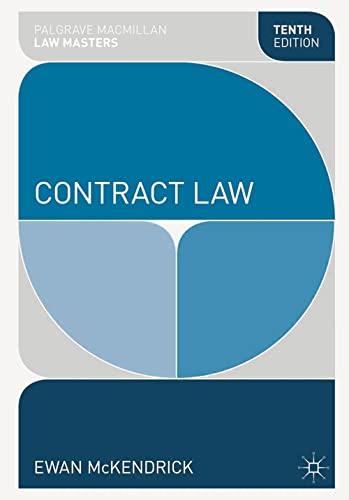Question
in Morgentaler, Smoling and Scott v . The Queen [1988] SCC [p.246 Introduction to Legal Studies Casebook] the Supreme Court of Canada held that section
in Morgentaler, Smoling and Scott v . The Queen [1988] SCC [p.246 Introduction to Legal Studies Casebook] the Supreme Court of Canada held that section 251 of the Criminal Code (requiring consent of a Therapeutic Abortion Committee to obtain an abortion) was of no force and effect.
(a) On what basis did they find that s. 251 of the Criminal Code infringed the Charter?
(b) What are the implications of defence counsel's advice to the jury that "if they did not like the law, they need not enforce it." ?
(c) Describe the challenge available to the Crown Attorney and Defence Counsel at a trial by jury, and why were peremptory challenges eliminated?
(d) What are the arguments for and against the use of juries in Criminal and Civil trials?
Step by Step Solution
There are 3 Steps involved in it
Step: 1

Get Instant Access to Expert-Tailored Solutions
See step-by-step solutions with expert insights and AI powered tools for academic success
Step: 2

Step: 3

Ace Your Homework with AI
Get the answers you need in no time with our AI-driven, step-by-step assistance
Get Started


